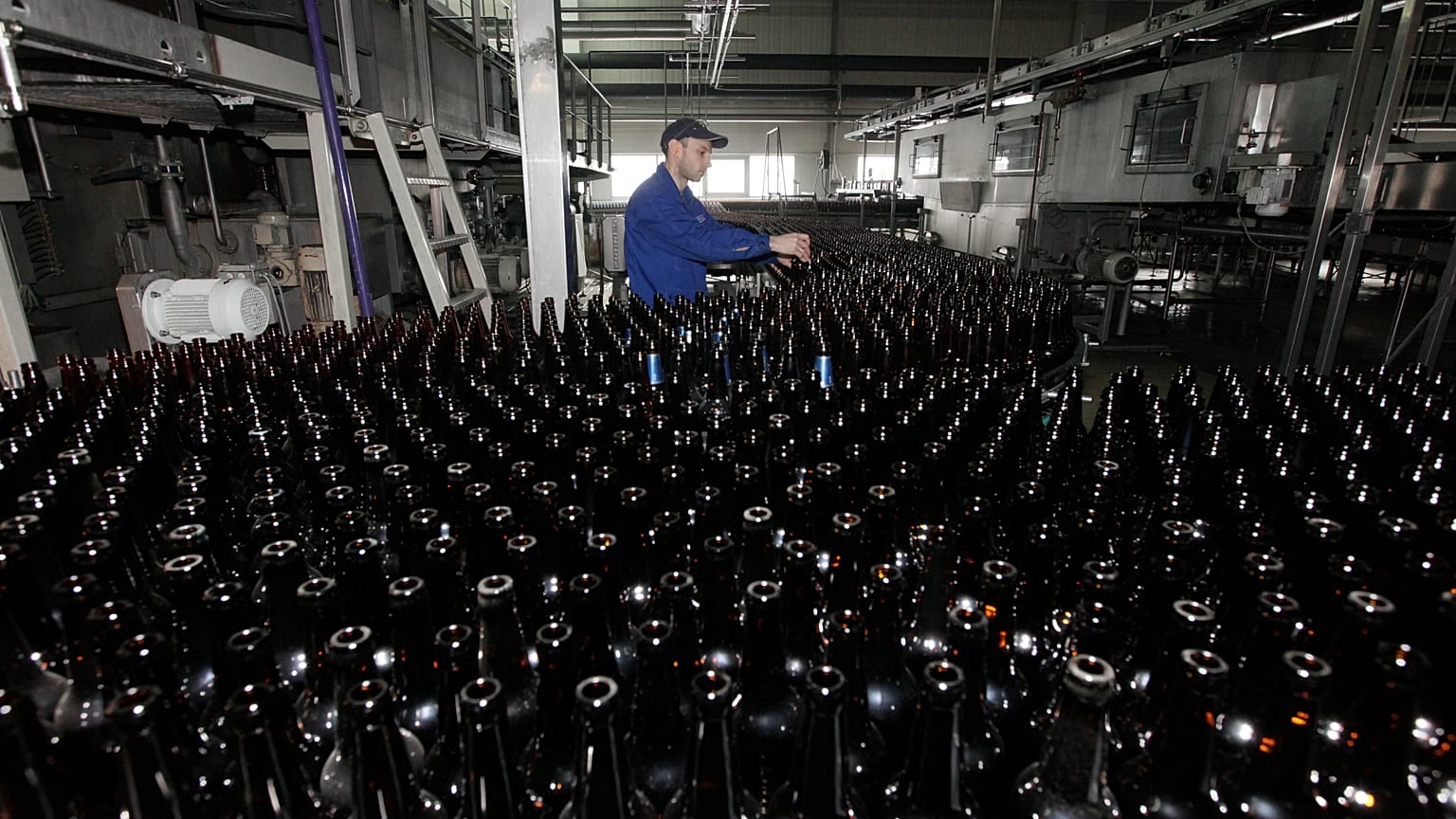The alleged fraud highlights the difficulties that Western firms and their executives face in trying to leave Russia.
Two top employees of Carlsberg's seized Russian unit, Baltika Breweries, were detained last week and will remain in custody until 30 December on suspicion of fraud, according to St Petersburg's Vyborg District Court.
 ADVERTISEMENT
ADVERTISEMENT
 ADVERTISEMENT
ADVERTISEMENT
The news highlights the difficulties faced by Western firms trying to leave Russia.
Large-scale fraud in the country can carry a sentence of up to 10 years in prison.
Prosecutors say Denis Sherstennikov and Anton Rogachevsky - described on their LinkedIn profiles as Baltika's CEO and vice president, legal - transferred some intellectual property rights to Carlsberg illegally as Russia assumed control.
After the two employees were detained, the court granted Baltika's request to hold proceedings behind closed doors to protect trade secrets, Russian news agencies reported.
Moscow assumed control of the Danish brewer's stake in Baltika in July, taking the firm under "temporary management".
Carlsberg said Russia was now trying to justify its takeover by "targeting innocent employees", adding: "The allegations reported in Russian media are fake."
Carlsberg has scrapped the licences enabling Baltika to produce, market and sell all Carlsberg Group products, including international and regional brands; Aarup-Andersen said it would not do a deal that would make Moscow's seizure look legitimate.
But Baltika is suing Carlsberg in Russia for the right to continue using the trademarks.
Why is it so difficult for Western companies to leave Russia?
Executives at other firms trying to leave Russia have told Reuters that repercussions for local staff are among their top concerns.
Ian Massey, Head of Corporate Intelligence, EMEA, at global risk consultancy S-RM, said the arrests showed how few options departing multinationals had.
"Move to divest, accepting highly opaque processes and deeply discounted valuations as the price, or navigate an increasingly difficult ongoing relationship and face the threat of seizure, huge total write-downs, and the inability to provide duty of care to staff," he said.

















